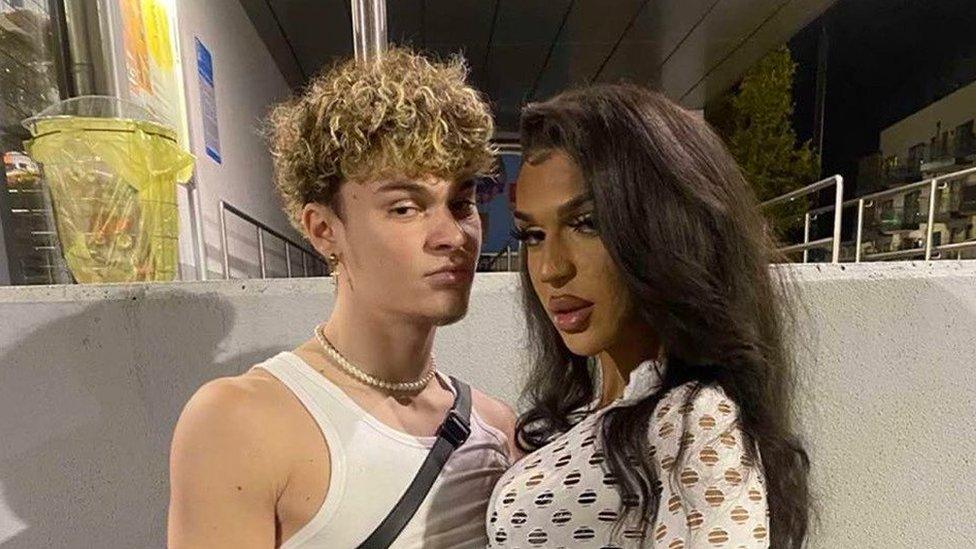Why Drag Race is still important for LGBT representation
- Published
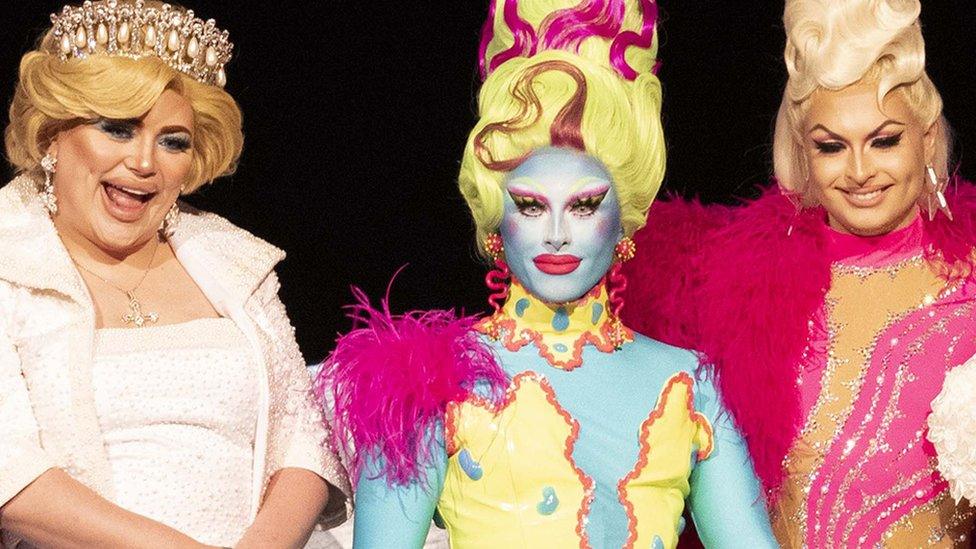
Think of Drag Race and the first things that come to mind are probably the runways, the drama, and the lip-syncs.
But the award-winning franchise, which first broadcast in 2009, has always offered more than that.
The show has been a platform for its contestants to share their experiences of serious issues such as homophobia, addiction, conversion therapy, rejection, mental-health, abuse and gender identity.
For many people, Drag Race is probably the first time they've experienced drag culture, or even seen LGBT people, on mainstream TV.
That was the case for Belfast-based Blu Hydrangea, who's taking part in new BBC Three spin-off, Drag Race UK vs The World.
The first episode was part of the BBC Three's opening night this week when the channel returned to TV screens for the first time since 2016.
The show brings together queens who have taken part in previous series across the world, and even a judge from the Thailand series, who's competing for the very first time.
"I didn't know much about what it was like to be gay," Blu tells Radio 1 Newsbeat.
Blu says she started watching the show aged 11.
"I was living in a village in the middle of Northern Ireland, which already is pretty behind the times."
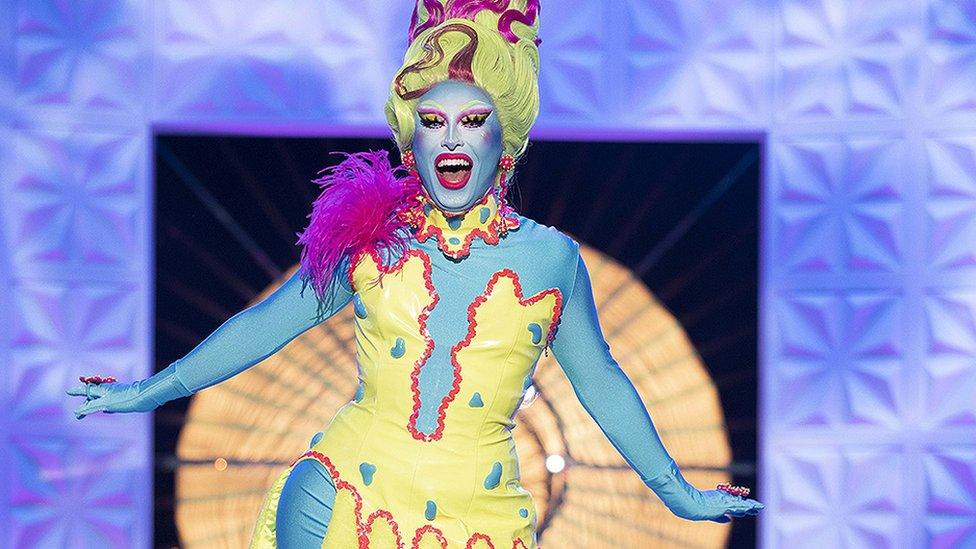
Blu says she felt like a 'background character' when she appeared on the first season of Drag Race UK
Blu says the show helped serve as the LGBT education she wasn't getting at school - and that she wants to see more of it in Northern Ireland education.
"I heard about stories of people that had been through conversion therapy, people who had been rejected by their family, and they were able to overcome that," Blu adds.
"It's maybe not a full education - people should still go out and find resources - but it definitely will help you get through those times and realise there's a light at the end of the tunnel."
"There are kids at home that might not feel like they have that support from the people around them."
'It's also educating parents'
In the second series of Drag Race UK, a conversation between non-binary queens Bimini and Ginny Lemon had a huge impact on viewers who identified the same way.
Non-binary is when an individual neither identifies as a male or a female.
One 22-year-old viewer told BBC Radio 1 Newsbeat at the time watching their conversation, with their mum, made it possible for them to speak about their gender identity at home for the first time.
Baga Chipz believes seeing conversations like this will also help young viewers with less supportive families.
"They might be getting picked on at school, or they might be struggling at home, with family members and all that," says Baga.
"So to see us on telly, we're basically saying, it does get better - it gets much better.
"It's not just about showing the young-uns that there is people like them out there, it's also educating parents."
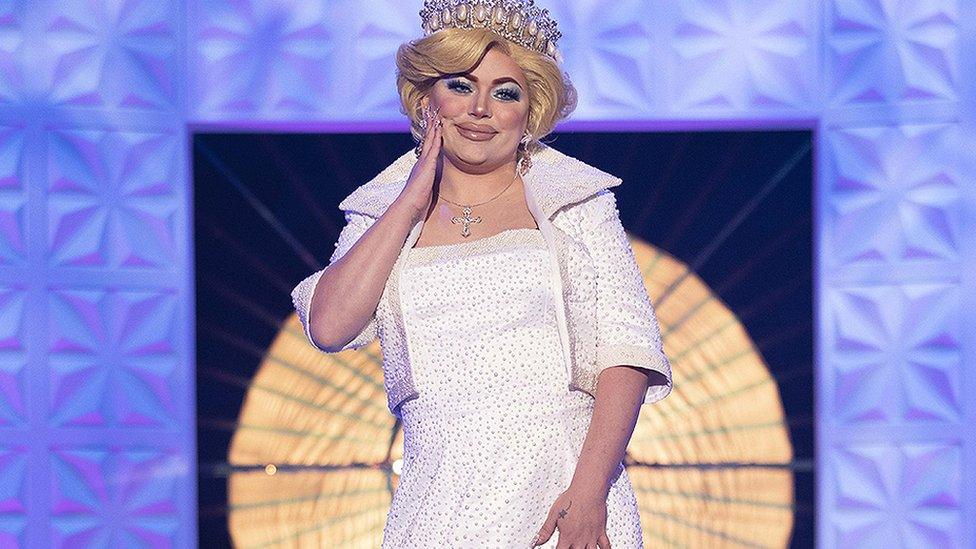
Baga says she's planning to take Thailand drag queen Pangina Heals to a Greggs to get a steak bake while she is in the UK
And for Essex queen Cheryl Hole, the impact goes beyond individual households and can help wider society be more accepting.
"I think whilst we've made progress as a country, we still need to fight for equal rights, especially for the trans community and the people of colour," Cheryl tells Newsbeat.
A recent report by the Council of Europe, external named the UK alongside Hungary, Poland, the Russian Federation and Turkey as places where "extensive and often virulent attacks on the rights of LGBTI people" occur.
"Our voices and our stories need to be heard, especially in times like now," Cheryl adds.
"Whilst the world is changing, and moving forward, we still need representation more than ever in the mainstream media."
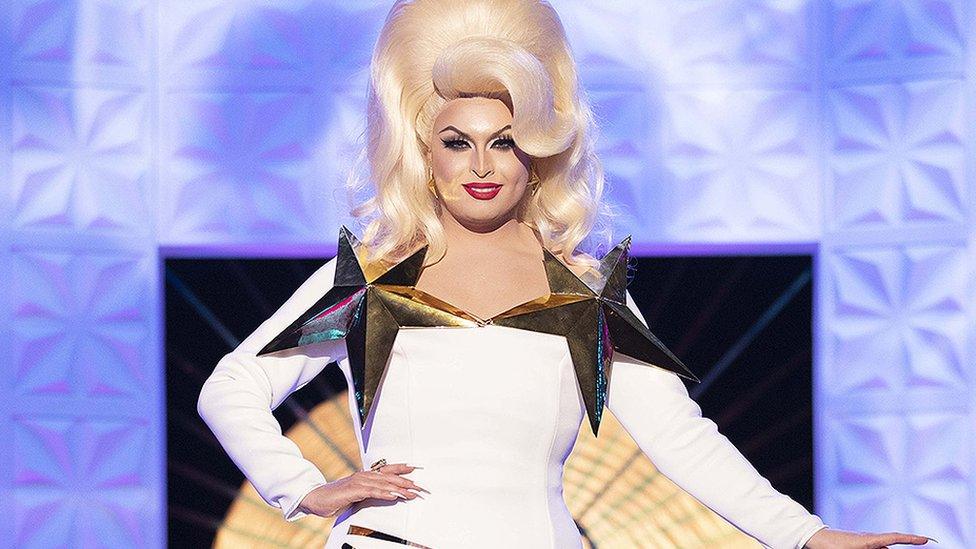
Cheryl says she enjoys the 'upfront' conversations on the show - but also wants to bring a bit of light to things with her 'porcelain teeth'
But it's not just the viewers who are learning about LGBT lives, experience and history through the show - sometimes it's the cast themselves.
Blu, Cheryl and Baga all appeared on the first season of Drag Race UK in 2019.
"There were so many people in my season that didn't know about Section 28 - and conversations like that," says Cheryl.
Section 28 was a law passed in 1988 by a Conservative government that stopped councils and schools "promoting the teaching of the acceptability of homosexuality as a pretended family relationship."
They discussed Section 28 in the show.
"It really opened up people's eyes to go, 'God, we really struggled as a community before'."
"And I think us reminding stuff about Stonewall, and when we first got marriage equality rights - stuff like that needs to be taught and spoken about."
Blu admits she was one of the queens who discovered more about LGBT lives by appearing on the show.
"I definitely learned a lot about being queer and different cultures, being in that work-room," she says.
"So I can only imagine what it would be like for someone at home."


Follow Newsbeat on Instagram, external, Facebook, external, Twitter, external and YouTube, external.
Listen to Newsbeat live at 12:45 and 17:45 weekdays - or listen back here.
- Published3 February 2021
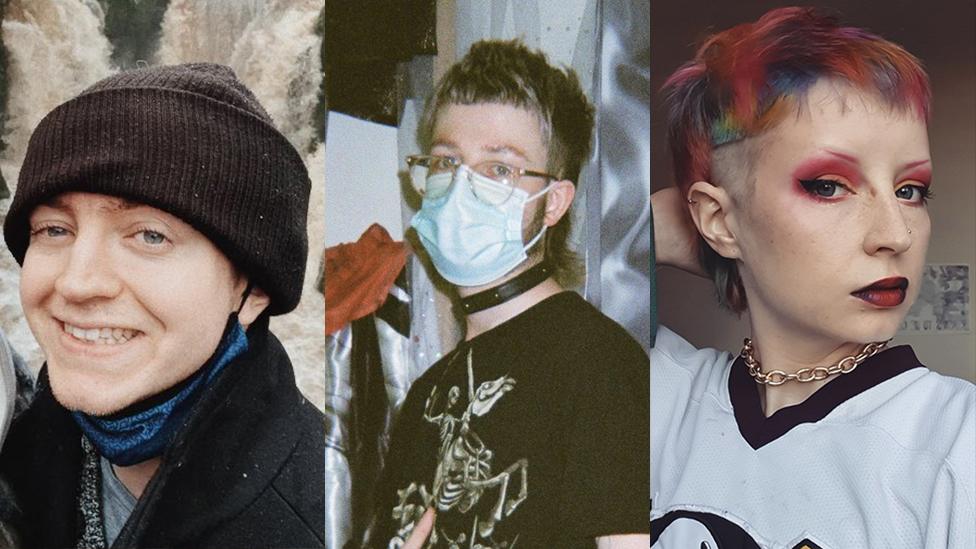
- Published24 January 2022
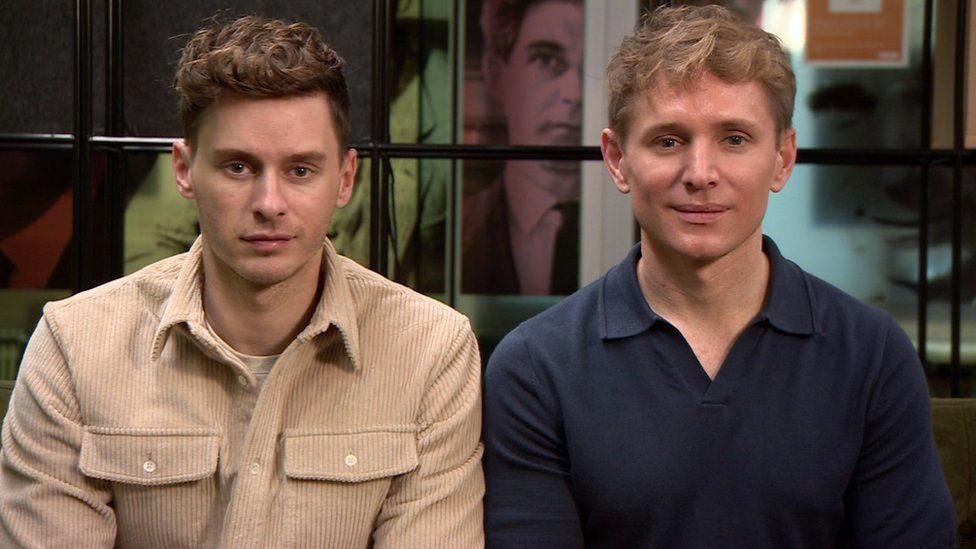
- Published1 February 2022
